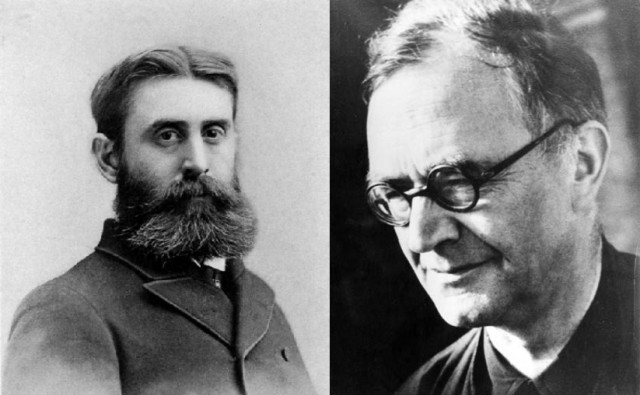
Lots has changed for us in twenty-thirteen, but one thing hasn’t… the end o’ year mixtape. I’m going to go ahead and fess up. This hasn’t been my best effort, and for that I can only offer my sincerest apologies. Searching out the very best in music didn’t rise to the top of the priority list. Somehow, writing a thesis, applying to doctoral programs, having a job, raising a family, spending time with friends, moving across an ocean, commencing studies, and generally getting acclimated to everything new, didn’t leave much time for culling the “best of the best.”
But never fear. As an obscure little band from my new country of residence once sang, “I get by with a little help from my friends.” You’ll find an original contribution or two on here, but mainly these are all songs/bands that came recommended by someone else. In a year in which I’ve been dependent on the generosity of others in an unprecedented way, it only seems fitting that my mixtape reflects a similar dependency.
This LINK gets you the goods.
Before you treat yourself to aural delight, the usual disclaimers apply. These are songs that are more or less new to me in 2013; not necessarily new in 2013. This playlist is right at 80 minutes and should in theory fit on a standard length CD. The time parameters meant that a whole host of songs were left on the cutting floor. Some honorable mentions go out to… Polica, MIA, Sleeping at Last, Avetts, The Head and the Heart, Canopy Climbers, Two Door Cinema Club, Andrew Bird, Glen Hansard, Iron and Wine, Bombay Bicycle Club, Ben Rector, and so on. Enough with the introductions, let’s get on with it…
- Dustin O’Halloran – An Ending, A Beginning // This has all the elements of a proper lead off song. A title that alludes to what has transpired in the past year. Properly down-tempo, which sets the tone for the entire mix. Instrumental. Like I said, just right. This song apparently comes off a Bonobo project of some kind. I think it was @taylorhall who first showed me the goodness of Bonobo.
- Loch Lomond – Wax and Wire // So there is a guy who I like watching on youtube who does tricks and stuff on bikes. His name is Danny MacAskill and he’s amazing. One of the pastors at our church in Aberdeen suggested that I check out his “Way Back Home” video. In addition to being blown away by his cycling prowess, the music was fantastic. By the way, Danny is Scottish and so is Loch Lomond. Good stuff.
- The Jezabels – A Little Piece // This is the other song on the bike video. Not Scottish though. Aussies.
- Lurgan – Wake Me Up (in Gaeilge) // I don’t think I’ve got the names right, but I’m not sure. So someone named Avicii sang a song that went crazy. Alison went to Ireland for a blog thing and got to see the song covered by a young Irish band that covered it singing in their ancestral language.
- One Direction – Right Now // I’m sure you are wondering what alternate Chino-verse you are living in when 1D bumps the Avett Brothers, but the “struggle” is very real for the father of a fourteen year old girl. There is no denying that after seeing “This Is Us” early this fall, I’m officially a Directioner.
- Alt-J (∆) – Tessellate // I believe this was a 2012 release, but I was introduced to it early this year by @KandaceCity. This album was on heavy repeat throughout the year and may very well go down as my favorite.
- Bastille – Pompeii // This one came recommended by my good friend, Ben Land. This song also begins a string of songs that all have mild (or not so mild) imperialistic allusions.
- Lorde – Everybody Wants to Rule the World (Tears for Fears Cover) // As the family and I were getting used to driving around Aberdeen, which was no small feat considering that the steering wheel and the side of the road on which one drives is “wrong,” we listened to Lorde’s “Royals” on the radio exactly 1009 times. I can not hear it one more time, but I’m liking this one from the Catching Fire soundtrack. So true… everybody does want to rule the world.
- Lissie – Mountaintop Removal // Lissie is a favorite of MP’s and mine. I’m not entirely sure, but I think this is a critique of materialistic impulses that are true in many places but especially true in ‘merica.
- Scroobius Pip – Thou Shalt Always Kill // This one comes to us via my friend and office mate, @KevinHargaden. He has brought many very good things into my life, but this “song” possibly tops the list. “Thou shalt not judge Lethal Weapon by Danny Glover.” I think you need to see the video to truly appreciate it.
- The National – Graceless // I’m a devotee of The National. They make music. I listen to it. I like it. It’s that simple. This wasn’t always the case, but my good friend Bobby Harrison encouraged me to stick with them, and now they have stuck with me.
- Volcano Choir – Alaskans // Another good friend (@jacobslaton) sent me the latest Volcano Choir album as a gift. What a fine gift it is. Jacob, pour one out for me around the firepit.
- Andrew Belle – Dark Matter // A few years ago, Bobby and I would listen to Andrew Belle in the office. A year or so later, Alison and I saw a show of his. His new album is a not quite as “sad bastard” as the last one, but I still like it.
- Royal Teeth – Wild // This is another Bobby recommendation. It is nice when a friend knows just the sort of music you’ll like and sends those recommendations your way. Keep em coming.
- Ed Sheeran – I See Fire // So I think this is the first song I’ve ever heard by Ed Sheeran, and it will probably be the last. However it was this song’s destiny to be on my 2013 best of’s. From the moment the first words were sung at the closing credits of the second Hobbit film, I was hooked.
- José González – Stay Alive // This is the third song on the playlist form a soundtrack. I’ve been looking forward to seeing The Secret Life of Walter Mitty. I’m looking forward to it all the more knowing that Mr González is lending his talent to the film.
- Greg Laswell – Comes And Goes In Waves (2013 Remake) // This one is sort of cheating. It is a song from a few years back, but when I found out that he reworked one of my favorite songs of his, I couldn’t resist including it.
- Denison Witmer – Right Behind You // @bob_davidson introduced me to Witmer’s song-crafting several years ago. He rounds out pretty well a quartet of ultra sleepy man tunes.
- Gungor – Finally // Needs no comment.

